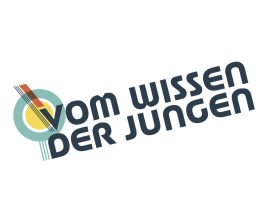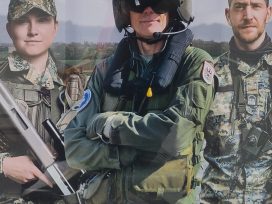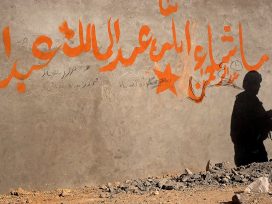Choosing Ukrainian, then and now
Reintegrating Russian-speaking Ukrainians into the ‘Motherland’ – one of Putin’s central pretexts for war – has impacted a sharp counter reaction: many are abandoning their mother tongue, reaffirming their Ukrainian identity. Could Ukraine be headed for monolingualism after centuries of multi-language cultural exchange?
In the nineteenth century, being Ukrainian was often a matter of choice. Ukraine’s urban population usually spoke languages other than Ukrainian: mostly Polish, sometimes German in the cities of Habsburg-ruled Galicia in the west, Russian in the cities of the Russian Empire, Yiddish in the Jewish populated towns on both sides of the Russian-Austrian border. The majority of the country’s rural population, meanwhile, spoke Ukrainian dialects and adhered to cultural traditions that we would nowadays recognize as typically Ukrainian. But what little evidence we have about their self-perception suggests that, in the absence of political rights, most identified with their village, religion or the peasantry rather than with a larger national community. Those who moved to the cities and managed to raise their social status usually discarded their rural dialects. They took up Russian and Polish, speaking with heavy tongues in the first generation, while their children largely assimilated into Russian or Polish-speaking urban society.
When the Ukrainian national movement gained steam in the middle of the nineteenth century, some of its activists were former villagers, sons and daughters of peasants or rural priests, who had not fully assimilated and retained a strong connection with Ukrainian-speaking rural culture. But many were not. The patriotic scholars who gathered in Kyiv’s Ukrainophile circles during the 1860s and 1870s were a motley crew united not by their common ethnic heritage but by political convictions. They shared a commitment to Ukraine’s peasants, whom the Russian state saw as Little Russians, a part of a larger Russian nation. The Ukrainophiles disagreed. For them, these peasants were the core of an autonomous Ukrainian nation, a nation with its own language and culture. Improving their lot would require the federalization of the imperial Russian state, freeing peasants from the burden of assimilation by teaching them in their own Ukrainian language – a language that many Ukrainophile intellectuals did not know very well.
Ukrainophiles, not Ukrainophones
Perhaps the most spirited of Kyiv’s Ukrainophiles was Volodymyr Antonovych. A professor of history at the city’s university, he originally came from a Polish-speaking family. Raised on a noble estate in rural Ukraine, he familiarized himself with the traditions of the Polish gentry, who saw themselves as the cultural elites of the region and often despised the Ukrainian-speaking peasants, perceiving them as ignorant and lazy. As a teenager, Antonovych was educated at a Russian-language school and studied at the universities in Odesa and Kyiv before embarking on his own academic career. But Antonovych’s trajectory neither led him towards the Polish nationality of his relatives nor toward assimilation into Russian imperial culture.
An avid reader of French enlightenment philosophy, the young student became increasingly interested in the lives of the Ukrainian-speaking peasantry, in whom he recognized a democratic element of the region’s social order. He and his friends donned peasant clothes and began to hike across the countryside to learn about rural life; they began to see themselves as the peasants’ brethren in a separate Ukrainian nation. Patriotic Polish nobles were not amused. They mocked Antonovych and his friends as chłopomani (peasant lovers) and accused them of being turncoats who had betrayed the Polish nation.1 In 1862, Antonovych penned a response, in which he proudly embraced this epithet:
I actually am a ‘turncoat’. […] By the will of fate I was born in Ukraine a member of the gentry. In childhood I possessed all the habits of a gentry youth, and I long shared all the class and national prejudices of the people in whose circle I was raised. When, however, I attained the age of self-awareness, […] I saw that a man of the Polish gentry living in South Russia had but two choices before the court of his conscience. One was to love the people in whose midst he lived, to become imbued with its interests, to return to the nationality his ancestors once had abandoned, and, as far as possible, by unremitting labor and love to compensate the people for the evil done to it. […] The second choice, for him who lacked sufficient moral strength for the first, was to emigrate to Polish territory, inhabited by the Polish people, in order that there might be one less parasite […]. I, of course, decided upon the first […].2
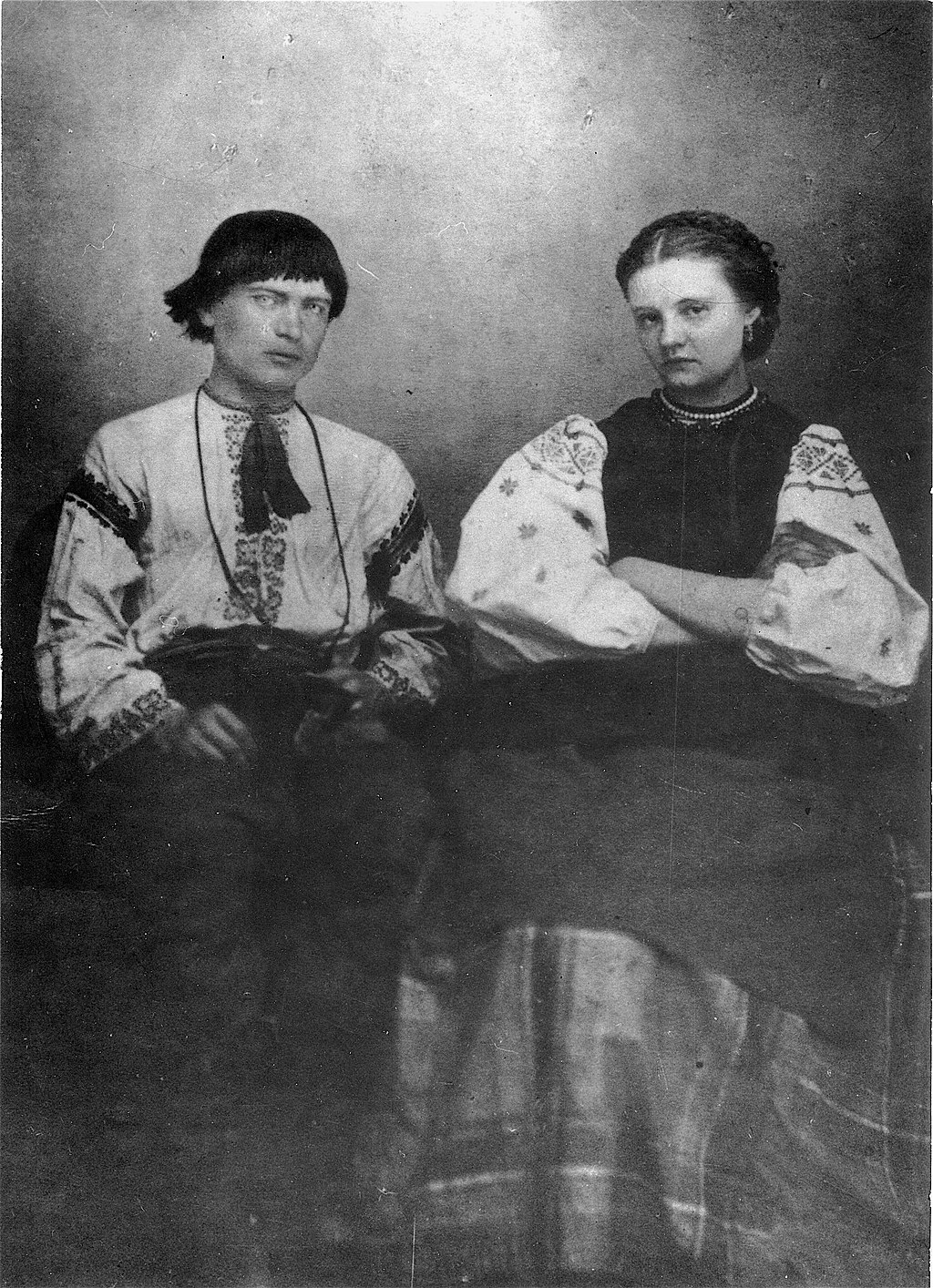
Volodymyr Antonovych and his wife Varvara in Ukrainian folk dresses, between 1850 and 1860. Image via Wikimedia Commons
For Antonovych, then, serving the peasantry and assimilating their culture was a moral duty for Ukraine’s elites. His text was testimony to an almost religiously felt national conversion – and indeed he did convert from Catholicism to Orthodoxy – as well as a gospel of voluntarily chosen nationality. Having embraced Ukrainian nationality for political reasons, Antonovych learned the Ukrainian language and explicitly encouraged others to do the same. Some of his students and friends in Kyiv’s educated circles followed his path. The Ukrainophile circle (Hromada) of the period included many native Russian speakers, both recent arrivals from Russia and descendants of assimilated local families, but also the Jewish lawyer Vladimir (Volodymyr) Berenshtam and the half-Swiss economist Mykola Ziber (Niclaus Sieber). Many of them never fully mastered the Ukrainian language, speaking it conspicuously with fellow Ukrainophiles but resorting to Russian to discuss more complicated topics. Nor were conditions favorable for switching to a language that the Russian imperial state repeatedly banned from the press and schools, leaving its speakers open to authority investigations.
Flexible identity
Of course, the opposite position was also possible and many socially mobile Ukrainians assimilated to Russian imperial culture. Some even became leaders of the empire’s burgeoning Russian nationalist movement.3 Such conscious choices of nationality weren’t unique to Ukraine. In Bohemia and Moravia, for instance, some German-speakers also identified as Czechs and studied the Czech language to become unambiguous members of the nation (and vice versa). But in Ukraine, where the language of the peasantry was related to those of the dominant neighbouring Russian and Polish cultures, and Russians and Ukrainians shared the Orthodox religion, national conversion and assimilation in all directions was easier than elsewhere.
The phenomenon was common enough for contemporaries to notice and comment upon. For instance, the Polish literary scholar Jerzy Stempowski, who grew up in Podolia in the early twentieth century, later gave the following ironic yet perceptive account of nationality issues during his youth:
The sons of Poles sometimes became Ukrainians, the sons of Germans and Frenchmen became Poles. […] ‘If a Pole marries a Russian woman,’ my father used to say, ‘their children are usually Ukrainians or Lithuanians.’ […] In these times, nationality was not an inevitable racial fate but largely a matter of free choice. This choice was not limited to language. […] each language carried historical, religious, and societal traditions; each formed an ethos etched by centuries of triumphs, defeats, dreams, and sophistry.4
From enforced nationality to citizenship
The age of mass politics, especially the onset of Soviet rule, fundamentally changed this situation. Although purportedly based on class rule, the Soviet state institutionalized nationality both territorially, with national republics, and individually, making nationality an unalterable and inheritable category fixed in passports.5 In an age of totalitarian claims to represent primordial national collectives, nationality was increasingly, in Stempowski’s words, ‘an inevitable racial fate’. Unlike in the nineteenth century, citizens had an official nationality that they retained even if they fully assimilated to a different language. Millions of assimilated Russian speakers in Ukraine were classified by the state as Ukrainians, and many of them also saw themselves as such.
After the collapse of the Soviet Union, independent Ukraine abolished the passport category of nationality. Instead, the state only recognized citizenship and society’s conception of the Ukrainian nation shifted in a civic direction. Ethnic background became a less salient category, as many people from ethnically Russian families either ceased to identify as Russians or perceived themselves as Russian-speaking citizens of Ukraine. Sociological surveys show that the percentage of people who identified primarily as Ukrainians increased steadily from the 1990s through the 2010s. At the same time, most Russian-speaking Ukrainians didn’t drastically change their linguistic habits.6
Wilful conversion
The Euromaidan protests of 2013-2014 and Russia’s aggression against Ukraine’s territorial integrity have further rallied Ukrainians around the flag. Faced with an existential threat, millions of people of different ethno-linguistic and religious backgrounds have declared their loyalty to Ukraine, not least because they see it as a more democratic and liberal alternative to Putin’s ‘Russian World’. Ironically, the shift toward a more civic conception of Ukrainian nationhood has been accompanied by a tendency toward monolingualism. As in the nineteenth century, some Russian speakers have consciously switched to the Ukrainian language for political reasons.
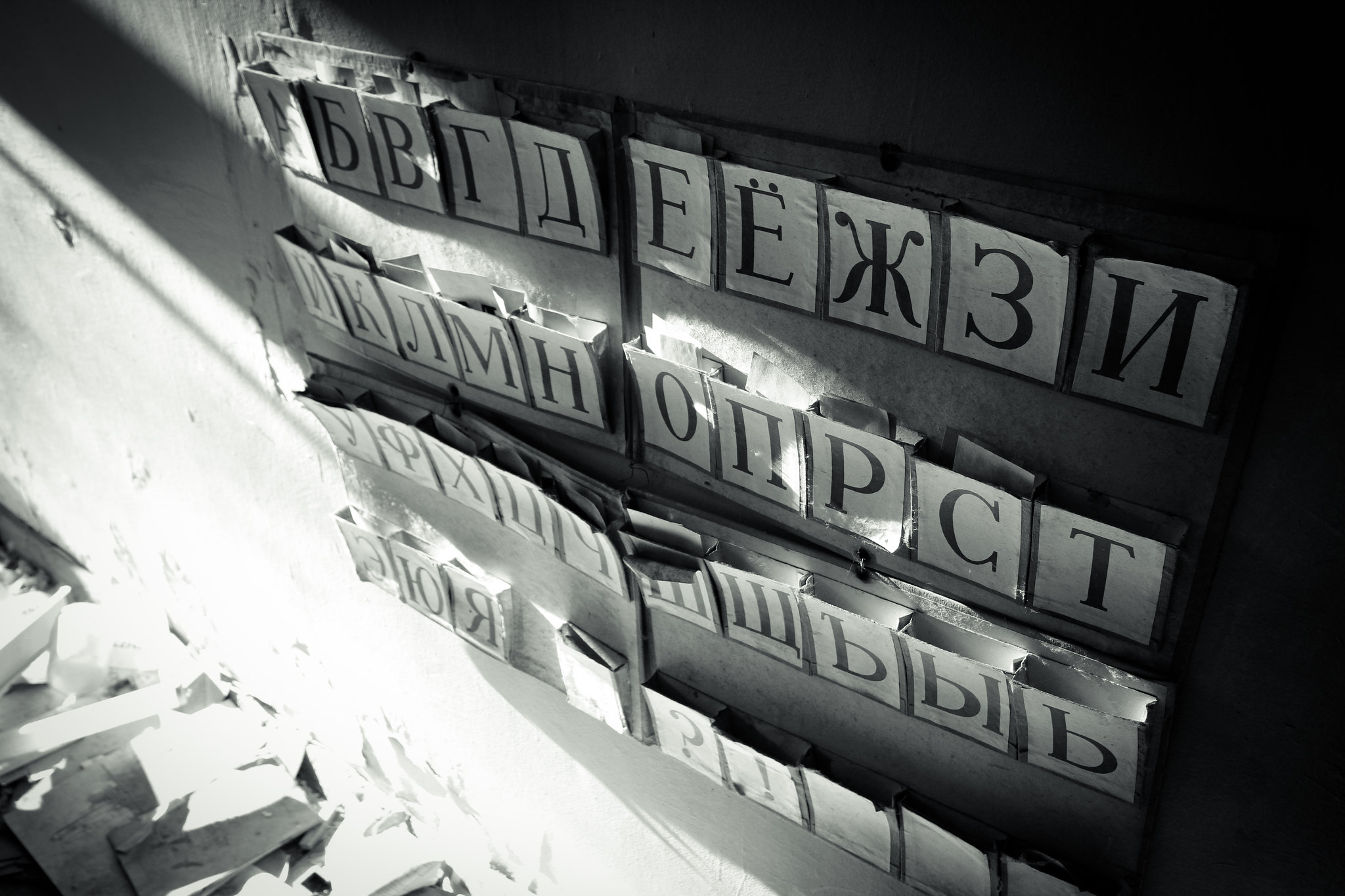
Russian alphabet, abandoned school in Pripyat, Ukraine. Image via Flickr
This development is closely linked to the Putin regime’s instrumentalization of Russian and its spurious claim to be defending the rights of Russian speakers across the globe as justification for its war against Ukraine. My host in Kyiv’s charming Podil district during my most recent visit in 2019, a sixty-year-old man who grew up in a Russian-speaking family, was a case in point. He would not speak Russian anymore, he told me in Ukrainian with a discernible Russian accent. He felt almost physically incapable of enunciating the same words as Vladimir Putin.
A famous example is Volodymyr Zelens’kyi, Ukraine’s president, who grew up in a Russophone family and made his career as a comedian in Russian. By now, his linguistic Ukrainization is so complete that he sometimes – perhaps performatively – asks his aides to help translate a term into Russian when giving an interview to Russian-speaking media.
Many young Ukrainians see choosing Ukrainian statehood and its language as a symbolic rejection of the political paralysis of the post-Soviet sphere. Author Sasha Dovzhyk, for example, has recently described her ‘conversion’ from being a Russophone youth in the southern Ukrainian city of Zaporizhzhia to becoming a Ukrainian-speaking intellectual. For Dovzhyk, it was the Euromaidan protests that bound her to the project of Ukraine’s democratic future as opposed to Russia’s homophobic authoritarianism. The experience of a powerful anti-authoritarian movement offered perspective on what she now perceives as a language of imperial oppression: ‘Such a language’, Dovzhyk writes, ‘refines stratifications, enfeebling one’s thought and eventually making one shudder at the idea of expressing anger at the higher-ups.’
Nationality over language
Not all patriotic Ukrainians go as far as Dovzhyk in their rejection of the Russian language. For many Russian speakers, Ukrainian remains a symbolic marker of identity rather than a regular means of communication. But research by sociologists such as Volodymyr Kulyk suggests that politically motivated changes of language are now a widespread phenomenon in the eastern and southern regions of Ukraine. Granted, declarations of Ukrainian being either a ‘native tongue’ or a ‘language of convenience’ shouldn’t always be taken at face value. Given the current situation, some may claim to use Ukrainian more than they actually do because they consider it politically appropriate. However, the widespread bilingualism in Ukrainian society makes it possible for many Ukrainians to switch between languages relatively easily, even if their Ukrainian may still include occasional Russian words or calques on Russian expressions. Even monolingual Russian speakers in the country are familiar with Ukrainian due to frequent exposure to the language, whether on television or in encounters with Ukrainian-speaking neighbour.
When Vladimir Putin set out to ‘liberate’ Russian-speaking Ukrainians, he completely misunderstood their priorities. Most were loyal citizens of democratic Ukraine and had little interest in becoming subjects of Putin’s kleptocratic dictatorship. To many, this was more important even than continuing to speak their native language. The future of the Russian language in Ukraine is therefore unclear. Millions of Ukrainians will likely continue to use Russian at least in some situations while remaining loyal citizens of the Ukrainian state. However, many of them will be happy to have their children educated in Ukrainian only. Therefore it seems likely that younger Ukrainians, who will always strongly associate Russian with the criminal Putin regime, will become the most Ukrainain-speaking generation in Ukraine’s modern history. To them, being Ukrainian and speaking Ukrainian will seem like the most obvious thing in the world. For the time being, however, there is a strong component of choice to Ukrainian identity and language, as there was in the nineteenth century.
This article has been published as part of the youth project Vom Wissen der Jungen. Wissenschaftskommunikation mit jungen Erwachsenen in Kriegszeiten, funded by the City of Vienna, Cultural Affairs.
V. Antonovych, 'Memoirs', in Fashioning Modern Ukraine: Selected Writings of Mykola Kostomarov, Volodymyr Antonovych and Mykhailo Drahomanov, S. Bilenky (ed.), Canadian Institute of Ukrainian Studies Press, 2013, pp. 187–236.
V.B. Antonovich, 'Moia ispoved’. Otvet panu Padalitse', Osnova 1 (1862), pp. 88-89; translated in Fashioning Modern Ukraine, pp. 251–52.
F. Hillis, Children of Rus’: Right-Bank Ukraine and the Invention of a Russian Nation, Cornell University Press, 2013; F. Baumann, 'Nationality as Choice of Path: Iakov Shul’gin, Dmitrii Pikhno, and the Russian-Ukrainian Crossroads', Kritika: Explorations in Russian and Eurasian History 23, no. 4, 2022, pp. 743–71.
J. Stempowski, W dolinie Dniestru. Pisma o Ukrainie, 1941; repr., Warsaw: Towarzystwo 'Wieź', 2014, pp. 7–8.
T. Martin, The Affirmative Action Empire: Nations and Nationalism in the Soviet Union, 1923-1939, Cornell University Press, 2001.
V. Kulyk, 'Identity in Transformation: Russian-Speakers in Post-Soviet Ukraine', Europe-Asia Studies 71, no. 1, 2019 pp.156–78; V. Kulyk, 'Is Ukraine a Multiethnic Country?', Slavic Review 81, no. 2, 2022, pp. 299–323.
Published 8 May 2023
Original in English
First published by Eurozine
Contributed by RECET © Fabian Baumann / RECET / Eurozine
PDF/PRINTIn collaboration with
In focal points
Newsletter
Subscribe to know what’s worth thinking about.
Related Articles

For those who suffered the consequences of Yalta’s division of Europe, the Helsinki Final Act brought grounds for optimism. Today, as Russia’s regressive war on Ukraine reopens old conflicts, it stands as a monument to European modernity.
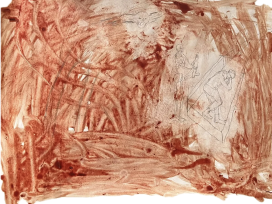
Artist Marharyta Polovinko’s creativity persisted in a tormented form through her experiences as a soldier on the Ukrainian frontline. The words of a recently called-up fellow creative and young family man provide a stark reminder that the Ukrainian military is buying Europeans time.

